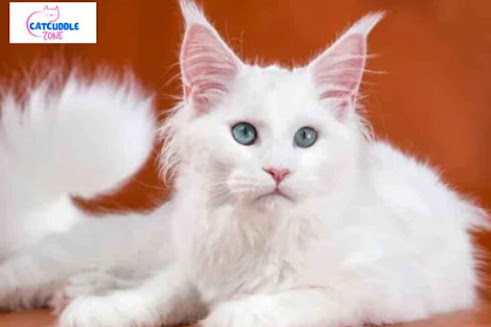Russian White Cats 101: Personality, Grooming & Surprising Facts
When it comes to elegance and grace in the feline world, few breeds can rival the Russian White cat. With their pure snow-white coats, striking green eyes, and gentle personality, these cats are more than just beautiful—they’re loyal companions with fascinating traits. In this guide, we’ll explore their personality, grooming needs, and surprising facts that every cat lover should know.
Origin of the Russian White Cat
The Russian White is a rare and relatively modern breed. They were developed in Australia in the 1970s by crossing the Russian Blue—famous for its silvery-blue coat—with a pure white Siberian cat. This combination produced a stunning white-coated cat while keeping the Russian Blue’s temperament and body type.
Over time, breeders refined the Russian White to create the unique, affectionate, and intelligent cats we know today.
Personality Traits
If you’re looking for a cat that’s equal parts affectionate and independent, the Russian White might be the perfect match.
-
Affectionate but not clingy – They love spending time with their humans but are not overly demanding.
-
Highly intelligent – They enjoy puzzle toys, learning tricks, and interactive play.
-
Gentle nature – They tend to get along well with children and other pets when socialized early.
-
Quiet companions – They’re not as vocal as Siamese cats but may chirp or purr softly to communicate.
Russian Whites are loyal and often form strong bonds with their owners, following them around the house without being intrusive.
Grooming & Care Tips
One of the great things about Russian Whites is their low-maintenance coat. Despite being pure white, they don’t require extreme grooming.
-
Brushing – Once a week is enough to remove loose hair and keep their coat shiny.
-
Bathing – Rarely necessary unless they get into something messy.
-
Dental care – Brush their teeth regularly to prevent tartar buildup.
-
Eye cleaning – White cats may show tear stains, so gently wipe their eyes with a damp cloth when needed.
-
Nail trimming – Every 2–3 weeks to avoid overgrowth and snagging.
Their fur is short, dense, and silky, making them less prone to matting compared to long-haired breeds.
Health Considerations
Russian Whites are generally healthy cats with a lifespan of 15–20 years. However, like any breed, they may be prone to certain issues:
-
Deafness – A rare risk in pure white cats, especially those with blue eyes.
-
Obesity – Prevent with portion control and regular exercise.
-
Dental problems – Keep up with oral hygiene to avoid gum disease.
Routine vet visits and a balanced diet will keep them happy and healthy for years.
Surprising Facts About Russian White Cats
-
They’re rare – You won’t find them in every pet store or shelter.
-
Three coat colors in one breed – The breed standard includes Russian White, Russian Black, and Russian Tabby.
-
Eye color – Most have vivid green eyes, but kittens may start with blue eyes that change as they mature.
-
Hypoallergenic? – While no cat is completely hypoallergenic, many allergy sufferers find Russian Whites easier to live with.
-
Calm travelers – They adapt well to new environments compared to some high-strung breeds.
Is a Russian White Cat Right for You?
If you want a beautiful, low-maintenance, and intelligent cat that enjoys your company without demanding constant attention, the Russian White could be your dream feline. They’re perfect for families, singles, and even apartment living, as long as they get enough love and stimulation.
💡 Final Tip: If you’re considering adopting a Russian White, seek out a reputable breeder or adoption center to ensure your cat is healthy and well-socialized.
Related Reading:
Visit Cat Cuddle Zone for More Cat Guides & Tips 🐾




Comments
Post a Comment